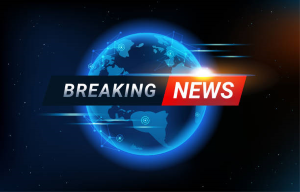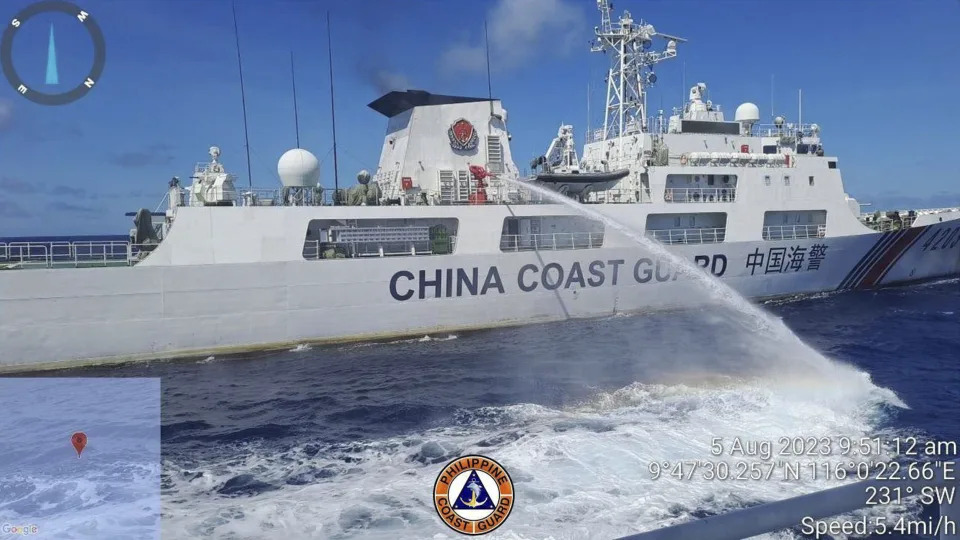Philippine government personnel transported food and other supplies Saturday to a fiercely disputed shoal occupied by a Filipino navy contingent but closely guarded by Beijing’s forces in the South China Sea and no confrontations were reported, Philippine officials said.
It was the first Philippine government supply trip to the Second Thomas Shoal, which has been the scene of increasingly violent confrontations between Chinese and Philippine forces, since the Philippines and China reached a deal a week ago to prevent clashes, the Department of Foreign Affairs in Manila said in a statement.
"The lawful and routine rotation and resupply mission within the Philippines’ exclusive economic zone is a credit to the professionalism of the men and women of the Philippine navy and the Philippine coast guard and the close coordination among the National Security Council, Department of National Defense and the Department of Foreign Affairs,” the Philippine Foreign Affairs Department said, without providing other details.
A top Philippine security official told The Associated Press that the Chinese and Philippine coast guards communicated for coordination Saturday, and their ships did not issue two-way radio challenges like in the past to demand that each other's ships leave the shoal immediately.
Also, for the first time at the shoal, Chinese coast guard ships did not shadow or block the Philippine vessels as they had repeatedly done in the past, said the official, who spoke on condition of anonymity because of a lack of authorization to discuss the delicate issue publicly.
China’s coast guard said the Philippine ship delivered daily necessities “in accordance with a temporary arrangement reached between China and the Philippines.”
“The China Coast Guard confirmed it, supervised and managed the entire process,” spokesperson Gan Yu said in a statement posted online.
The deal was reached by the Philippines and China after a series of meetings between the two country's diplomats in Manila and exchanges of diplomatic notes aimed to establish a mutually acceptable arrangement at the shoal — which Filipinos call Ayungin and the Chinese call Ren’ai Jiao — without conceding either side’s territorial claims, Philippine officials said.
The deal has not been made public by either side.
U.S. Secretary of State Antony Blinken welcomed the news that the resupply mission was completed without a confrontation.
"We applaud that and hope and expect to see that it continues going forward,” said Blinken, who was in Laos for a meeting of foreign ministers of the Association of Southeast Asian Nations, a group that includes the Philippines.
China's coast guard and other forces have used powerful water cannons and dangerous blocking maneuvers to prevent food and other supplies from reaching Filipino navy personnel at Manila’s outpost at the shoal, on a long-grounded and rusting warship, the BRP Sierra Madre.
In the worst confrontation, Chinese forces on motorboats repeatedly rammed and then boarded two Philippine navy boats on June 17 to prevent Filipino personnel from transferring food and other supplies, including firearms, to the ship outpost in the shallows of the shoal, according to the Philippine government. The Chinese seized the Philippine navy boats and damaged them with machetes and improvised spears. They also seized seven M4 rifles, which were packed in cases, and other supplies. The violent faceoff wounded several Filipino navy personnel, including one who lost his thumb, in a chaotic skirmish that was captured in video and photos that were later made public by Philippine officials.
China and the Philippines blamed each other for the confrontation and each asserted their own sovereign rights over the shoal.
The United States and its key Asian and Western allies, including Japan and Australia, condemned the Chinese acts at the shoal and called for the rule of law and freedom of navigation to be upheld in the South China Sea, a key global trade route with rich fishing areas and undersea gas deposits.
In addition to China and the Philippines, Vietnam, Malaysia, Brunei and Taiwan have been locked in separate but increasingly tense territorial disputes in the waterway, which is regarded as a potential flashpoint and a delicate fault line in the U.S.-China regional rivalry. The U.S. military has deployed Navy ships and fighter jets for decades in what it calls freedom of navigation and overflight patrols, which China has opposed and regards as a threat to regional stability.
Washington has no territorial claims in the disputed waters but has repeatedly warned that it is obligated to defend the Philippines, its oldest treaty ally in Asia, if Filipino forces, ships and aircraft come under an armed attack, including in the South China Sea.
AfriPrime App link: FREE to download...
https://www.amazon.com/Africircle-AfriPrime/dp/B0D2M3F2JT
Secretary of State Antony Blinken presses China's Wang Yi on U.S.-China tensions
Secretary of State Antony Blinken attended the ASEAN Foreign Ministers' meeting in Vientiane, Laos, for the first stop of a weeklong tour of Asia.
U.S. Secretary of State Antony Blinken on Saturday confronted his Chinese counterpart, Wang Yi, on areas of disagreement between the two nations, including Beijing's continued support of Russia.
The two officials met during an annual international conference of Southeast Asian nations in Laos's capital, Vientiane.
U.S. State Department spokesman Matthew Miller said in a statement that the two discussed bilateral, regional and global issues on the sidelines of the conference, according to CNN.
"The Secretary made clear that the United States, together with our allies and partners, will advance our vision for a free and open Indo-Pacific," the statement read.
Blinken also brought up China's support of Russia amid its now two-year-long invasion of Ukraine and warned that the United States would take "appropriate measures" if Beijing does not cease, Miller said.
Wang in the meeting insisted that China has not sent any weapons to Russia, according to The New York Times.
The Biden administration has claimed the country is at least indirectly aiding Moscow through the export of dual-use materials such as machine tools and microelectronics that have been used to continue the Ukraine war.
The Chinese foreign ministry in a statement summarizing the meeting said Wang told Blinken the United Stakes has "a wrong perception of China" and urged the return of a "rational and pragmatic China policy."
"China is not the United States and does not want to become the United States," The statement read. "China does not seek hegemony or power, and is a major country with the best record in the world on peace and security issues."
Wang said China's approach to Ukraine has been transparent and it would continue to promote peace and dialogue, according to the Chinese foreign ministry.
Blinken said the United States had a "core interest" in defending Ukraine against Russia, according to the State Department.
Beijing's increased militarization in the South China Sea and toward Taiwan has been another sticking point in U.S.-China relations. Wang on Saturday asserted that Taiwan has always been and always will be part of China.
Wang also said the United States should stop imposing sanctions on China and that Beijing would bend to "pressure and blackmail."
The United States has leveled over 300 sanctions on Chinese entities in response to the export of dual-use materials to Russia, according to the State Department.
Both officials noted China recently reached an agreement with the Philippines on naval activity regarding the Second Thomas Shoal -- locally known as the Ren'ai Reef -- a contested area in which Philippine marines are posted.
Blinken said the two countries could further collaborate on strengthening high-level military talks, artificial intelligence and combating the narcotics trade. President Joe Biden and Chinese President Xi Jinping discussed cooperation on some of these issues at a summit last year outside of San Francisco.
The Chinese foreign ministry said the two agreed to maintain communication.
Blinken was in Laos for the first visit of a weeklong diplomatic tour, which includes stops in Vietnam, Japan, the Philippines, Singapore and Mongolia.
The secretary's travels across Asia come amid heightened tensions between the United States and China. Biden has made smoothing over rocky relations between the two countries a core priority before he leaves office in January.
Wang reportedly did not bring up the looming U.S. presidential election, despite concern over what international relations could look like under a second Trump administration. Wang did say that Xi values his relationship with Biden.
AfriPrime App link: FREE to download...




